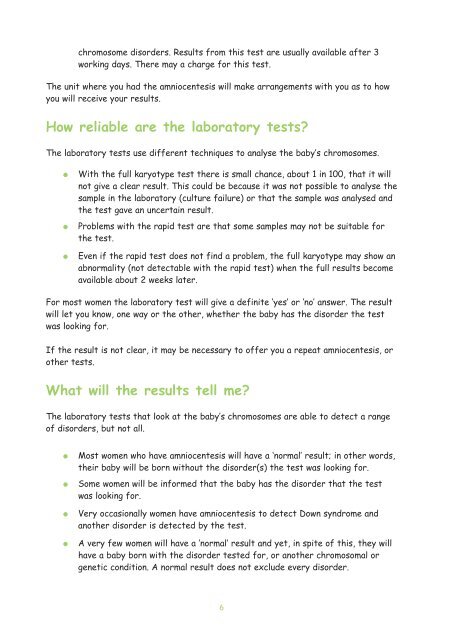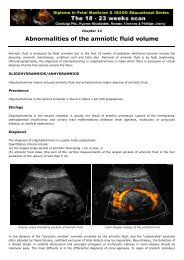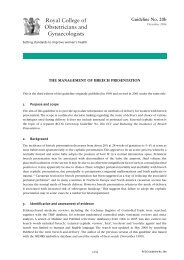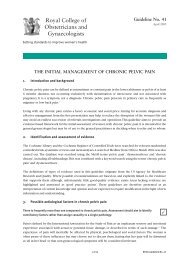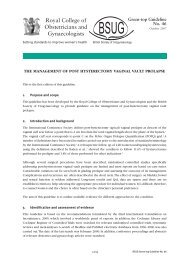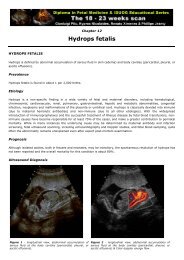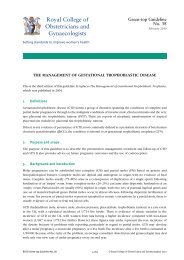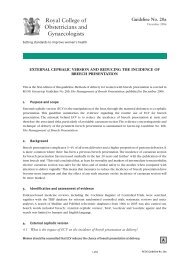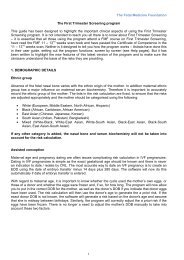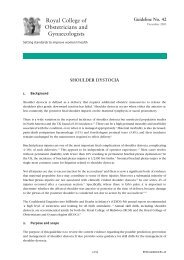Amniocentesis - what you need to know
Amniocentesis - what you need to know
Amniocentesis - what you need to know
You also want an ePaper? Increase the reach of your titles
YUMPU automatically turns print PDFs into web optimized ePapers that Google loves.
chromosome disorders. Results from this test are usually available after 3<br />
working days. There may a charge for this test.<br />
The unit where <strong>you</strong> had the amniocentesis will make arrangements with <strong>you</strong> as <strong>to</strong> how<br />
<strong>you</strong> will receive <strong>you</strong>r results.<br />
How reliable are the labora<strong>to</strong>ry tests?<br />
The labora<strong>to</strong>ry tests use different techniques <strong>to</strong> analyse the baby’s chromosomes.<br />
●<br />
●<br />
●<br />
With the full karyotype test there is small chance, about 1 in 100, that it will<br />
not give a clear result. This could be because it was not possible <strong>to</strong> analyse the<br />
sample in the labora<strong>to</strong>ry (culture failure) or that the sample was analysed and<br />
the test gave an uncertain result.<br />
Problems with the rapid test are that some samples may not be suitable for<br />
the test.<br />
Even if the rapid test does not find a problem, the full karyotype may show an<br />
abnormality (not detectable with the rapid test) when the full results become<br />
available about 2 weeks later.<br />
For most women the labora<strong>to</strong>ry test will give a definite ‘yes’ or ‘no’ answer. The result<br />
will let <strong>you</strong> <strong>know</strong>, one way or the other, whether the baby has the disorder the test<br />
was looking for.<br />
If the result is not clear, it may be necessary <strong>to</strong> offer <strong>you</strong> a repeat amniocentesis, or<br />
other tests.<br />
What will the results tell me?<br />
The labora<strong>to</strong>ry tests that look at the baby’s chromosomes are able <strong>to</strong> detect a range<br />
of disorders, but not all.<br />
●<br />
●<br />
●<br />
●<br />
Most women who have amniocentesis will have a ‘normal’ result; in other words,<br />
their baby will be born without the disorder(s) the test was looking for.<br />
Some women will be informed that the baby has the disorder that the test<br />
was looking for.<br />
Very occasionally women have amniocentesis <strong>to</strong> detect Down syndrome and<br />
another disorder is detected by the test.<br />
A very few women will have a ‘normal’ result and yet, in spite of this, they will<br />
have a baby born with the disorder tested for, or another chromosomal or<br />
genetic condition. A normal result does not exclude every disorder.<br />
6


